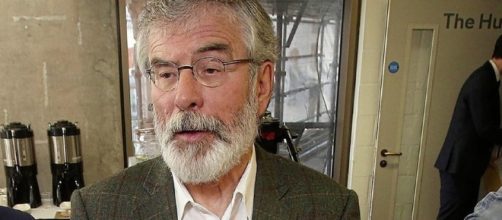For those who remember the Troubles in Northern Ireland, the political marriage between Sinn Fein's Martin McGuinness and the Democratic Unionist Party's (DUP) Ian Paisley seemed too good to be true. To be fair to them both, they made devolution work and behaved like a political match made in heaven. Since then, the former deputy first minister's relations with the unionists has deteriorated. There was no mutual love between Mr. McGuinness and Mr. Paisley's successors, like Peter Robinson and Arlene Foster. But at least they kept the power-sharing agreement alive.
When things seem too good to be true, they often are. Britain's vote to leave the European Union last year has been used as a political weapon by Sinn Fein to speed up the process of a united Ireland. They have betrayed the Irish people by putting their own self-interest above Ulster's. The Irish Question following Brexit was always going to be complicated. Before both the UK and Ireland joined the European Economic Community (EEC) in 1973, an agreement existed between both countries that enabled the free movement of people between both sides of the border. After joining the EEC, the future settlement of the Irish border now lies with the EU. But for the nationalists, the answer is simple: a referendum on Irish unity.
Sinn Fein want Irish unity at any cost
There is no appetite in Northern Ireland for such a vote. A poll conducted by IPSOS-MORI showed 63 per cent of people wish to remain part of the UK. Only 22 per cent wanted to join the Republic. The DUP remains the largest party in the province, both in Stormont and Westminster. A referendum would fail for the nationalists. Sinn Fein want Irish unity at any cost. And if they are not blaming Brexit for the collapse in power-sharing, then it is the Conservatives' fault too for forming a supply-and-confidence agreement with the DUP. It seems to be everyone else's fault, except Gerry Adams'.
Northern Ireland has come so far since the IRA abandoned their weapons in 2005.
Even though the DUP-Sinn Fein coalition has made questionable decisions since 2007 and proved Ulster's people deserve better than sectarian politicians, at least both parties have made devolution work. When Ireland's own future in the EU seems far from certain, it is disappointing the nationalists are pursuing a separatist agenda to join a trading bloc whose collapse is imminent. Many people were shocked to see the DUP and Sinn Fein form a coalition in May 2007. It has prevailed much to critics' expectations. Anyone who has studied Northern Irish politics, though, knows it was always a matter of when, not if, this agreement would eventually fail. Brexit was only the catalyst.

